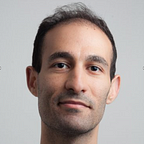How to Boost Your Appetite for Challenge
When given the choice between a difficult task and an easy task, it’s natural to expect that people will choose the easy one. In daily life and in most scientific work, effort is typically conceptualized as a cost. Brain imaging studies, for example, often look at how the brain trades off effort-related costs against reward-related benefits each time we make a choice.
This story is somewhat oversimplified though. We might normally avoid effort, but there are many examples of how we actively seek it out too. You may be the sort of person who enjoys a crossword or wants to train for a marathon or loses hours of sleep thinking about pointless philosophical questions (is that just me?). Maybe you’re even participating in the current Wordle craze?
In these examples, we exert effort purely for the fun of it. There isn’t a huge payoff waiting at the other end of crosswords or Wordles — merely the satisfaction of having completed them. And yet, we want to put the effort in.
One new study has tested whether people can be trained to prefer tasks that require higher rather than lower effort, and the results are reshaping how we think about struggle and success.
